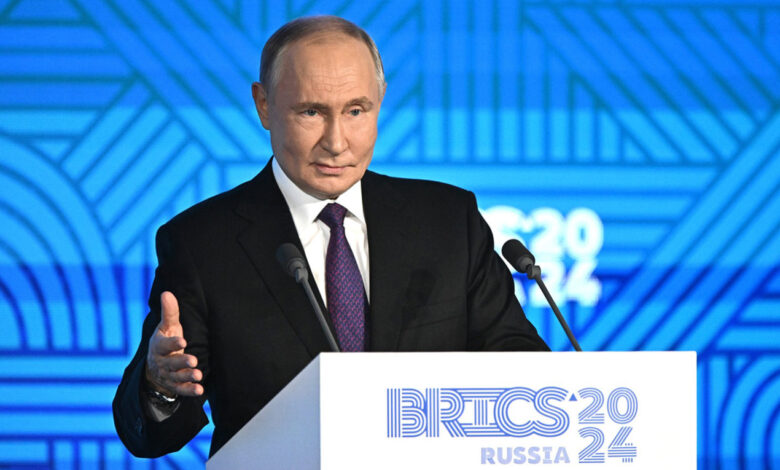
The adoption of cryptocurrencies has emerged as a focal point for BRICS member states, comprising Brazil, Russia, India, China, and South Africa. During a recent business forum held in Moscow, discussions revolved around reducing dependency on Western financial systems by introducing alternatives to the SWIFT payment network.
Call for Embracing Digital Currencies
In the forum, Russian President Vladimir Putin made a compelling case for BRICS members to integrate cryptocurrencies and digital currencies into their financial systems. He emphasized that this could significantly reduce dependence on the US dollar, providing a strategic advantage for BRICS and other developing nations.
Putin voiced his conviction that exploring digital currencies could yield significant benefits for the economic bloc. He advocated for BRICS to examine digital currency adoption as a means to enhance financial independence and resilience.
In a notable development, BRICS announced plans to utilize digital currencies for various investment initiatives. This move is anticipated to extend beyond BRICS, offering potential advantages to other emerging economies as well. Nonetheless, Putin stressed the necessity for establishing comprehensive regulations, underscoring the importance of a robust framework governed by BRICS nations before fully embracing crypto adoption.
An Increasing Trend Towards Crypto Adoption
The global landscape is witnessing a growing number of economies gravitating towards digital currencies, such as cryptocurrencies and Central Bank Digital Currencies (CBDCs). These digital forms of money offer an alternative to traditional banking systems and have been gaining traction worldwide.
Within the BRICS bloc, Russia and China are pioneering the exploration of digital currencies. Russia is gearing up to pilot its digital rouble in the coming year, with selected participants including individuals and companies engaging in transactions using digital roubles.
China, on the other hand, has made significant strides with its Digital Currency Electronic Payment (DCEP), also known as e-CNY. This initiative, backed by the Chinese government and managed by the Central Bank of China, aims to provide a modern payment solution. By the end of 2021, a substantial number of individual wallets had been opened, facilitating transactions worth billions of Chinese yuan.
The Launch of BRICS Pay
In addition to digital currencies, BRICS has introduced a groundbreaking payment platform known as BRICS Pay. This innovative solution is poised to challenge the dominance of the SWIFT financial system, offering a streamlined approach to cross-border transactions within the bloc.
BRICS Pay represents a significant milestone in the bloc’s efforts to establish an autonomous economic framework, free from the influence of traditional power structures. By providing an alternative to SWIFT, BRICS Pay aligns with the aspirations of its member nations to achieve financial sovereignty and circumvent potential economic sanctions.
This strategic move underscores the commitment of BRICS countries to redefine their financial landscape, fostering greater economic cooperation and integration among member states. As the world continues to embrace digital innovations, the adoption of cryptocurrencies and digital payment systems within BRICS is poised to reshape the global financial ecosystem.







